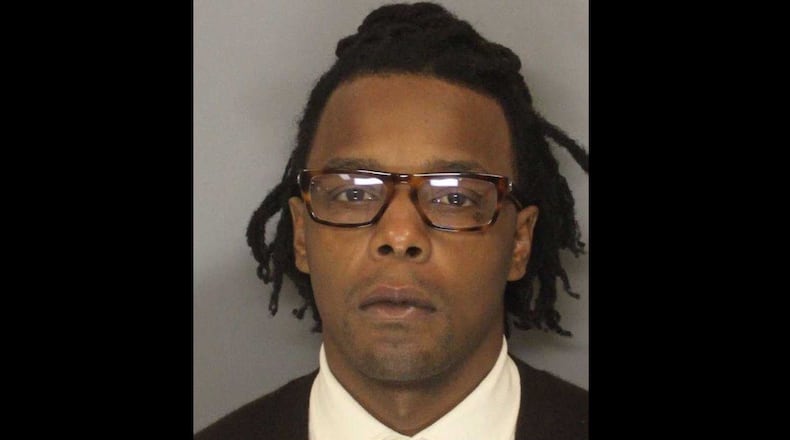The man accused of shooting up Lil Wayne's tour bus three years ago will get another chance in court because a Cobb County judge overstepped her bounds, according to a Georgia Supreme Court majority decision filed Friday.
Jimmy Carlton Winfrey appealed his 10-year prison sentence in February claiming that Cobb Superior Court Judge Mary Staley Clark pushed him into taking a plea deal he'd previously declined by threatening him with a harsh sentence if he went to trial.
A call to the judge’s office was not immediately returned Friday afternoon.
READ | Man gets life again for beating Cobb girlfriend to death with hammer
Credit: Melissa Ruggieri
Credit: Melissa Ruggieri
Winfrey will remain in custody while his case goes back to Cobb courts, said his attorney Steven Sadow. From there, it’ll be like none of this happened. Winfrey will again have the chance to take another plea deal or go to trial.
Police previously said that Winfrey told investigators he shot the rapper's tour bus for a higher gang status.
Although he has to start the legal process over and has allegedly already admitted to the crime, Sadow said his client was happy to hear about the reversal.
“There was a little screaming of joy, but it was a little difficult to tell over the telephone,” he said.
Winfrey — who goes by Peewee Roscoe — was the tour manager for rapper Bryan Williams (Birdman), and had a Bloods gang beef with Dwayne Carter (Lil Wayne) that also involved a record label contract dispute.
An argument between Winfrey and Carter started outside of the Compound nightclub on Brady Avenue where Carter was performing in April 2015.
MORE | Driver in Lil Wayne bus shooting sues music label, Young Thug, Birdman
Hours later, police said, Winfrey driving a white Camaro pulled up on Carter’s tour buses along a Cobb section of I-285 and began shooting.
Winfrey was indicted on 27 charges, including one involving gang violence, in July 2015. Prosecutors offered him three plea deals, which he declined; he was hesitant of pleading to the gang charge because of how it would affect his chances of parole.
Winfrey’s attorneys told the judge of his hesitance to take a plea deal, and that’s when the judge got herself into trouble, the Supreme Court said.
“This opportunity is going away,” the judge said to Winfrey at the time. “Go to trial and you get convicted there’s not going to be any of me being concerned about when you parole out. I will not be concerned about when you parole out.”
Then she brought up another Cobb gang case that had just finished its trial and sentencing.
“And if you want to look around and see what happens to people in gangs in Cobb County, Georgia, you can look at what happened last week to the guy who went to trial and got convicted.”
He was sentenced to 50 years in prison.
Like Cobb County News Now on Facebook | Follow on Twitter
“We all have reputations,” the judge said. “My reputation is not that I’m an easy judge. I know it, you know it, the whole community knows it. So if that’s what you want to go up against be my guest.”
All but two of the justices decided that, even though the judge never explicitly said Winfrey would get a harsher sentence by passing on the plea deal, the judge implied it and that’s an overreach of her duties.
Even the dissenting justices agreed that the judge did “cross the line” when she “impliedly threatened” Winfrey. The difference is that the dissenters weren’t given enough proof that it actually scared Winfrey into finally agreeing to take the plea deal.
“I was always very hopeful that the Supreme Court would set some ... lines of demarcation for judges and this certainly does so,” Sadow said.
About the Author
Keep Reading
The Latest
Featured




